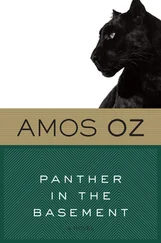Amos Oz - Where the Jackals Howl
Здесь есть возможность читать онлайн «Amos Oz - Where the Jackals Howl» весь текст электронной книги совершенно бесплатно (целиком полную версию без сокращений). В некоторых случаях можно слушать аудио, скачать через торрент в формате fb2 и присутствует краткое содержание. Год выпуска: 2012, Издательство: Houghton Mifflin Harcourt, Жанр: Современная проза, на английском языке. Описание произведения, (предисловие) а так же отзывы посетителей доступны на портале библиотеки ЛибКат.
- Название:Where the Jackals Howl
- Автор:
- Издательство:Houghton Mifflin Harcourt
- Жанр:
- Год:2012
- ISBN:нет данных
- Рейтинг книги:4 / 5. Голосов: 1
-
Избранное:Добавить в избранное
- Отзывы:
-
Ваша оценка:
- 80
- 1
- 2
- 3
- 4
- 5
Where the Jackals Howl: краткое содержание, описание и аннотация
Предлагаем к чтению аннотацию, описание, краткое содержание или предисловие (зависит от того, что написал сам автор книги «Where the Jackals Howl»). Если вы не нашли необходимую информацию о книге — напишите в комментариях, мы постараемся отыскать её.
Where the Jackals Howl — читать онлайн бесплатно полную книгу (весь текст) целиком
Ниже представлен текст книги, разбитый по страницам. Система сохранения места последней прочитанной страницы, позволяет с удобством читать онлайн бесплатно книгу «Where the Jackals Howl», без необходимости каждый раз заново искать на чём Вы остановились. Поставьте закладку, и сможете в любой момент перейти на страницу, на которой закончили чтение.
Интервал:
Закладка:
When her doings came to light, Gilead ordered her to be given a leather flask of water and sent away into the desert to the dead to whom she called at night, for it is written: Thou shalt not suffer a witch to live.
But at first light the lord saddled his horse and rode out and brought her home. He cursed her gods and struck her face with the back of his rough hand.
Pitdah blew in his face and cursed him and his people and his God. A hot green sparkle glinted in the pupil of her eye.
Suddenly they both laughed and went inside. The door closed behind them while outside the horses neighed.
Gilead’s wife Nehushtah urged her three sons against the Ammonite woman because she could endure no more. She rose from her bed and stood at the window in her white robe, with her back to the room and her sons and her face to the desert, and she whispered to them, You see your mother dying before your eyes and you are silent: do not be silent.
But Jamin and Jemuel feared their father and would not raise a finger.
Only Azur, the youngest of her sons, hearkened to her and plotted against the Ammonite servantgirl. This Azur devoted all his days to the dogs of the estate. He it was who fed and watered them, taught them tricks, and trained them to go straight for the throat. In Mizpeh of Gilead they said of him: That Azur understands the dogs’ tongue and can howl or bark in the dark like one of them. Azur had a small gray wolf cub that ate from his dish and drank from his cup, and both of them had sharp white teeth.
One day at the beginning of autumn, when Gilead had gone away to another field, Azur set his dogs on Pitdah the Ammonite concubine. He stood in the shade of the house and let out a guttural growl when Pitdah went past, and the dogs, with the wolf cub in their midst, darted from the dungheap and almost tore her apart.
At nightfall Gilead returned home and gave his son Azur over to a cruel slave, shriveled and shorn, to take him out to the desert, as shall be done to a murderer.
In the night the wild beasts howled, their eyes gleaming yellow in the darkness beyond the stockade.
This time, too, Gilead set out on horseback at the end of the night and brought his son back. He struck and cursed his son just as he had struck and cursed his concubine.
After these things it came to pass that the Ammonite woman cast a spell upon the boy Azur: for forty days he howled and barked and could not speak a word.
Upon her lord Pitdah also cast a dark spirit, because he had spared Azur and she did not forgive him this pardon. A brooding gloom fell on the master of the house which only lifted when he consumed large draughts of wine.
When Pitdah bore Jephthah, Gilead the Gileadite shut himself up in the cellar of the house for four days and five nights. All through these nights he clinked cup on cup, drained them both, and filled them again. On the fifth night he collapsed on the ground. In his dream he saw a black horseman with a lance of black fire, mounted on a black horse, while a floating woman who was neither Pitdah nor Nehushtah but a stranger held the reins; horse and rider followed her silently. Gilead did not forget this dream, because he believed, like some other men, that dreams are sent to us from that place from which man comes and to which he returns through his death.
When the child Jephthah grew old enough to leave the women’s quarters and walk about in the courtyard, he learned to hide from his father. He would shelter in a haystack until the heavy man had passed and his sinister footsteps had receded, so that he should not find him. Until Gilead disappeared the infant would chew straw or hay or his own finger and whisper to himself: Quiet, quiet.
If the child was so absorbed in his dreams that it was too late for him to hide, Gilead the Gileadite would catch him and wave him aloft between his frightening hands and moo at him, and he smelled sweaty and shaggy, so that the child howled with pain and fear and planted his tiny teeth in his father’s shoulder in a vain effort to free himself from the powerful grasp.
3
JEPHTHAH WAS born facing the desert. The estate of Gilead the Gileadite was the last of all the tribe’s patrimony. At its fringe began the desert, and beyond the desert was the land of the Ammonites.
Gilead the Gileadite possessed flocks of sheep, and he also had fields and vineyards whose margins were yellowed by the desert. The house was surrounded by a high stone wall. The house itself was also built of black volcanic stone. An ancient vine sprawled over its walls. On summer days people seemed to come and go through a thicket of vines; the foliage was so dense that the stone walls of the house could not be seen in summer.
Toward morning sheep bells could be heard, and the shepherds’ pipes spread vague enchantments, the water whispered quietly in the irrigation channels, and a gray light shone in the wells. There was calm toward morning over all Gilead’s estate.
Within the calm rippled a suppressed yearning. The shade of large trees concealed chilly twilight.
But every night dark, impassive shepherds guarded the farmstead against bears and nomads and Ammonite marauders. All night long torches flamed on the rooftop and a pack of lean hounds lurked in the darkness of the orchards. The household priest flitted like a dark shadow along the fences in the night, conjuring evil spirits.
From his earliest childhood Jephthah knew all the sounds of the night. He knew them in his blood, sounds of wind and wolf and bird of prey, and human sounds disguised as wind and fox and bird.
Beyond the fence lived another world, which silently yearned by day and night to raze the house to the ground, gnawing slyly and with infinite patience, like a stream slowly eating away at its banks. It was unimaginably soft and quiet, softer than a mist, quieter than a breeze, and yet ever-present: powerful and invisible.
Black goats kept the boy company; he led them to pasture and watched them all day long munching the sparse grass, risking their lives on the sheer crags of the narrow strip of pasture that survived among the rocky ravines, for the place was on the edge of the desert. He was also accompanied by emaciated dogs, his brother Azur’s dogs. They were rough dogs, and savagery always lurked beneath their obsequiousness. Wild birds also flocked to Jephthah, shrieking their reproaches in his ears.
Early in the morning birds screeched in the distance. In the evening, as twilight fell, the crickets shrilled as though they had an urgent, fearful message to deliver. In the dark Jephthah heard a fine stillness pierced occasionally by the cry of a fox or jackal, punctuated by a hyena’s laughter.
Sometimes desert nomads raided the estate at night. In the darkness Gilead’s shepherds lay in wait for the foe, who came as softly as a breath; if he slew he stole silently away, and if he was slain he died as silently. In the morning they would find a man lying on his back under the olive trees, his hand perhaps still clutching the haft of the knife that was sunk in his flesh and his eyes turned inward. Shepherd or foeman alike.
Seeing the whites of the corpse’s bulging eyes, Jephthah would say to himself: A corpse turns his eyes inward, perhaps there he finds other sights to see.
Sometimes Jephthah dreamed of his own death, and he seemed to feel strong, kindly hands bearing him down to the plain. Softly, sweetly, a light drizzle touched him, and a little shepherd girl said: Here for a while we shall sit and rest until after the rain and the light.
In the summertime the vegetation ran riot in the orchards and the ripening fruit filled out with moisture. Powerful juices coursed through the veins of the apple trees. The vine shoots seemed to shudder with the pressure of pent-up sap. Goats sported wantonly and the bull bellowed and raged. In the women’s quarters and in the shepherds’ booths there was heavy panting; toward dawn the boy could hear in his slumber a sound like a dying beast’s groans. Women also occupied his dreams: Jephthah was filled with longing for delicate forces he could not name, not silk, not water, not skin, not hair, but a yearning for a warm, melting touch, hardly a touch at all, perhaps river-thoughts, smells, colors, and not that, either.
Читать дальшеИнтервал:
Закладка:
Похожие книги на «Where the Jackals Howl»
Представляем Вашему вниманию похожие книги на «Where the Jackals Howl» списком для выбора. Мы отобрали схожую по названию и смыслу литературу в надежде предоставить читателям больше вариантов отыскать новые, интересные, ещё непрочитанные произведения.
Обсуждение, отзывы о книге «Where the Jackals Howl» и просто собственные мнения читателей. Оставьте ваши комментарии, напишите, что Вы думаете о произведении, его смысле или главных героях. Укажите что конкретно понравилось, а что нет, и почему Вы так считаете.












